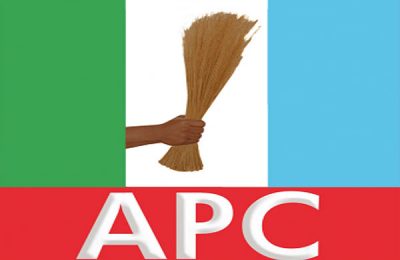Recently, the attention of the Honourable Speaker, Kogi State House of Assembly, Rt. Hon. Momoh Jimoh Lawal, and other members of the Assembly was drawn to tirades being traded by some ill-informed anti-democratic critics of the state legislature- wrongly and gratuitously published in some sections of the media. In particular, these media organs in all ramifications, are very local, community-based, shallow in depth and highly unprofessional.
Ordinarily, the ignorance of such critics and their seasonal papers used as hired goons can be pardoned or ignored, but communications effort to continually make the public abreast of activities of the House is necessary, especially to ward off the vitriolic attacks. The hegemonic critics use these quack papers to propagate mischief with very barren distortion of facts aimed at misinforming the gullible populace. The facts therefore should be inevitably laid bare to give light over darkness and knowledge over dissemination of falsehood.
With their contrary view even in the light of prevailing circumstances and every sense of modesty, the Kogi State House of Assembly, especially the current legislative session for the past two years, has towered above a large number of its contemporaries in carrying out its traditional role of making laws for the peace, orderliness and good governance of the people among the comity of other legislatures in the country.
In the year under review, the self-styled uninformed critics of the House have savagely and unjustifiably alleged that the House is not meeting up constituency responsibilities, not vibrant and holding adequate number of sitting days and so on. Where lays the truth of their arm-chair assumption when the House sat for 195 days instead of the constitutionally stipulated 181 days? Total number of Bills tabled before the House were 20, out of which 13 Bills were passed into law, with 12 Executive Bills, and 8 Members private Bills; 29 numbers of motions were presented and adopted, including 32 resolutions and 15 Matters of urgent public importance deliberated and resolved.
Notably, these Bills include the Freedom of Information Bill, being the first ever domesticated Bill from the Federal Acts in the North Central Nigeria geo-political region, the Gender and Equal Opportunities Bill; the Christian Pilgrims and Hajj Commission bills; a Bill to make provision for the Administration of Estates of Deceased Persons in Kogi State by the Administrator General; a Bill for a law to provide for the Preparation, Printing and Publication of a revised edition of the laws of Kogi State of Nigeria and for other purposes connected therewith.
Others Bills include the Bill for a law to make provision for the administration and collection of revenue due to the government of Kogi State and Local Government Councils in the state. Currently, it is heart-warming to note that the Bill for law to provide for the establishment of Kogi State Debt Securities (Issuance) law 2013 was passed into law. A N20 billion bond is being sought under this law in the sincere effort to accelerate the execution of capital projects in the on-going Kogi State Transformation Agenda led by Capt. Idris Ichalla Wada.
In a similar vein, a Bill for a law to establish a Public-Private Partnership for the State has been passed into law. The primary importance of the Bill is to maintain public infrastructure or public assets and provide social amenities and other facilities through public private partnership in the state. In essence, the Bill is targeted at providing appropriate regulatory framework for the involvement of public-private partnership (PPP) in the development of public infrastructures or public assets.
In seeking to achieve this objective, a body shall be established to be known as the Kogi State Public-Private Partnership Bureau, and shall be responsible for making policies and guidelines in respect of public private partnership in the State.
It is also educative and instructive to note that despite the call for the setting up of an Assembly Service Commission, the Kogi State House of Assembly is studded with the right galaxy of professional members of staff in the legal, legislative, financial, administrative, as well as the information structure of the House.
Even if a Commission is established, the Chairman and Leader of the Assembly remains the Speaker. The Assembly has a seasoned Clerk, who is the Chief Administrative Officer of the Assembly, responsible for coordinating activities and functions of the various departments. For instance, the administrative bureaucracy of the National Assembly is a combination of the National Assembly made-up of career civil servants and overseen by the National Assembly Service Commission in terms of appointments, promotions, welfare and discipline of the Assembly’s members of staff. So, what is wrong in career civil servants working in the Assembly as it is practiced in most democracies of the world?
Even as an Assembly Service Commission is being anticipated, it is the responsibility of the Clerk to consult and advise the Speaker and other principal officers on matters that are legislative and administrative in nature. This is the current bulwark of dynamic activities going on in the Assembly. The commission, whose duty is saddled with the responsibility of the appointment, promotion and discipline of members of staff, would not in any way usurp the powers of the Assembly itself. Though yet to be established, it has not monumentally affected the performance of the Kogi State House of Assembly.
Moreover, a bird’s eye-view into the profiles of the Honourable Members of the House prominently show that they are reputable academics, technocrats and experienced professionals and parliamentarians in major fields and callings, thereby making them very vibrant, fire-brand, very knowledgeable law-makers, also loaded with cutting-edge success, and giant strides in business, politics and legislation. They are philanthropists with monumental physically established projects and social services to their constituents.
What is the empirical parameter for judging a House as a surrogate of the Executive? What is wrong for a House to observe the principle of separation of Powers in a democracy, which is anchored on synergetic relationship with the Executive, thus enhancing the passing bills into laws for a state that is in need of jump-starting its development, political peace, and tranquillity?
In a nutshell, these self-seeking critics are blind-folded and oblivious of the fact that members of various committees of the House are made up of very sound technocrats with vast wealth of experience. They are relentlessly carrying out oversight functions targeted at rapidly improving the internally generated revenue base of the state, and entrench fiscal discipline in the body polity.
How else do these utopians want a legislative House to be adjudged vibrant, proactive and productive? So, it is immoral, ungodly and timorous to condemn an individual or institution because of one’s self-serving aggrandizement.
In their inordinate desire to achieve a lame cause with the penchant for misguided fallacy, sweeping, destabilizing tendencies, the House has been compelled to invite the so-called rights advocates and media critics to prove the veracity of their claims on Wednesday, 28th August, 2013.
The Nigeria Union of Journalists (NUJ), Kogi State Council is also called upon to get rid of quacks who parade themselves as Journalists. The Public should filter with good sense of Judgment that the outbursts of mischief-makers who parade themselves as human rights activists should be discountenanced as a group on sale by political elements whose stock-in-trade is to halt the pace of progress in the on-going Transformation Agenda of Capt. Idris Ichalla Wada’s administration.
AUGUSTINE AKUBO is the Chief Press Secretary to The Speaker, Kogi State House of Assembly



